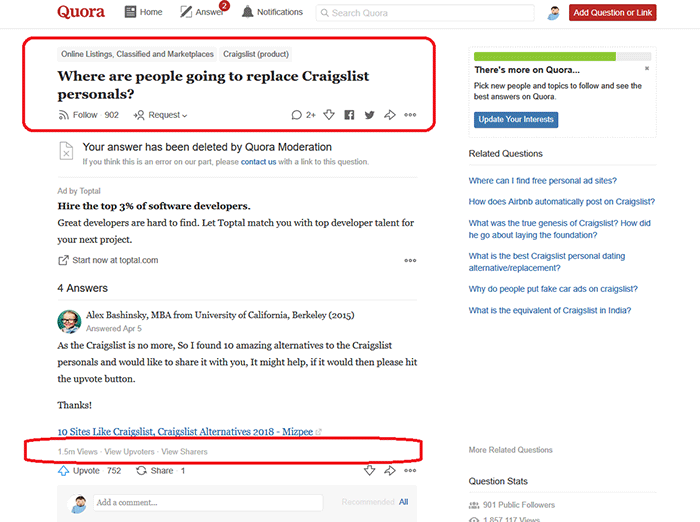Intercourse on Campus
Identity-
Free
Identity
Politics
A written report from
the agender,
aromantic, asexual
top line.
Photos by
Elliott Brown, Jr.
NYU course of 2016
“Presently, I claim that I am agender.
I’m getting rid of myself personally from personal construct of gender,” states Mars Marson, a 21-year-old NYU film major with a thatch of quick black colored tresses.
Marson is conversing with me amid a roomful of Queer Union students within class’s LGBTQ pupil center, in which a front-desk bin supplies free of charge buttons that let site visitors proclaim their particular favored pronoun. Associated with the seven college students collected at Queer Union, five like the single
they,
designed to denote the kind of post-gender self-identification Marson defines.
Marson came into this world a lady naturally and came out as a lesbian in high-school. But NYU ended up being a revelation â a spot to explore transgenderism immediately after which decline it. “I do not feel connected to the phrase
transgender
because it feels more resonant with digital trans individuals,” Marson says, talking about those who want to tread a linear path from female to male, or vice versa. You could point out that Marson additionally the some other students during the Queer Union determine as an alternative with getting somewhere in the midst of the road, but that’s not exactly correct possibly. “I think âin the center’ nevertheless sets men and women as the be-all-end-all,” claims Thomas Rabuano, 19, a sophomore crisis major which wears makeup products, a turbanlike headband, and a flowy blouse and skirt and cites Lady Gaga as well as the homosexual fictional character Kurt on
Glee
as big teenage role designs. “I like to think about it external.” Everybody in the class
mm-hmmm
s approval and snaps their fingers in agreement. Amina Sayeed, 19, a sophomore from Diverses Moines, believes. “standard ladies clothes are female and colourful and emphasized the reality that I’d breasts. We hated that,” Sayeed says. “So now we say that I’m an agender demi-girl with link with the female binary sex.”
About far side of university identity politics
â the spots when occupied by lgbt students and later by transgender ones â you now find pockets of students such as, young adults for who tries to categorize identification experience anachronistic, oppressive, or just sorely irrelevant. For older generations of homosexual and queer communities, the endeavor (and pleasure) of identity exploration on campus will look significantly familiar. Nevertheless the distinctions now are striking. Current task is not only about questioning your own identity; it is more about questioning ab muscles character of identity. You may not be a boy, you may not be a lady, possibly, and how comfortable could you be utilizing the idea of becoming neither? You may want to sleep with guys, or ladies, or transmen, or transwomen, while might choose to be psychologically a part of all of them, also â but perhaps not in identical blend, since why would the romantic and intimate orientations always have to be a similar thing? Or the reason why contemplate positioning at all? The appetites could be panromantic but asexual; you could recognize as a cisgender (not transgender) aromantic. The linguistic options are nearly endless: a good amount of vocabulary meant to articulate the character of imprecision in identification. And it’s really a worldview that’s a whole lot about words and feelings: For a movement of teenagers pressing the boundaries of desire, could feel remarkably unlibidinous.
A Glossary
The Involved Linguistics for the Campus Queer Movement
A few things about intercourse haven’t changed, and do not will. But also for many of those who visited school decades ago â or even several years ago â a few of the latest sexual language may be unfamiliar. Below, a cheat sheet.
Agender:
somebody who determines as neither male nor feminine
Asexual:
an individual who doesn’t encounter libido, but whom may go through romantic longing
Aromantic:
someone who doesn’t discover intimate longing, but really does experience sexual desire

Cisgender:
not transgender; hawaii where gender you identify with fits the only you’re designated at birth

Demisexual:
someone with restricted sexual interest, typically believed only in the context of deep emotional connection
Gender:
a 20th-century restriction
Genderqueer:
a person with an identification outside of the standard sex binaries
Graysexual:
an even more wide term for a person with restricted sexual interest
Intersectionality:
the fact that sex, competition, course, and sexual orientation is not interrogated on their own from a single another
Panromantic:
an individual who is actually romantically into any individual of every sex or direction; this does not always connote accompanying sexual interest
Pansexual:
somebody who is sexually interested in any person of any gender or direction
Reporting by
Allison P. Davis
and
Jessica Roy
Robyn Ochs, an old Harvard officer who was at college for 26 years (and just who began the college’s group for LGBTQ faculty and staff members), views one major reason why these linguistically challenging identities have actually suddenly become so popular: “I ask young queer men and women how they discovered the labels they explain on their own with,” claims Ochs, “and Tumblr may be the #1 response.” The social-media program has spawned a million microcommunities worldwide, including Queer Muslims, Queers With Disabilities, and Trans Jewry. Jack Halberstam, a 53-year-old self-identified “trans butch” teacher of gender scientific studies at USC, specifically alludes to Judith Butler’s 1990 book,
Gender Difficulty,
the gender-theory bible for university queers. Estimates from this, like much reblogged “There is no gender identification behind the expressions of gender; that identity is actually performatively constituted of the very âexpressions’ which can be reported to be the effects,” have grown to be Tumblr lure â perhaps the earth’s the very least most likely viral content.
But some of queer NYU pupils I spoke to failed to come to be truly acquainted with the language they now use to explain themselves until they arrived at college. Campuses tend to be staffed by managers who arrived old in the first wave of political correctness as well as the height of semiotics-deconstruction mania. In school now, intersectionality (the idea that battle, course, and gender identity are typical linked) is central for their method of understanding just about everything. But rejecting groups altogether is generally sexy, transgressive, a helpful way to win a quarrel or feel special.
Or even which is too cynical. Despite just how extreme this lexical contortion may appear for some, the students’ wants to establish on their own outside of sex felt like an outgrowth of serious vexation and deep scarring from being elevated in the to-them-unbearable part of “boy” or “girl.” Developing an identity that is identified by what you
are not
doesn’t look specially effortless. We ask the students if their brand new social permit to recognize by themselves beyond sex and sex, if the pure plethora of self-identifying possibilities they usually have â such as Facebook’s much-hyped 58 sex choices, everything from “trans person” to “genderqueer” on the vaguely French-sounding “neutrois” (which, in accordance with neutrois.com, are not described, ever since the extremely point of being neutrois would be that your gender is actually specific to you) â sometimes renders them sensation like they can be going swimming in room.
“I feel like i am in a sweets shop and there’s each one of these different options,” claims Darya Goharian, 22, a senior from an Iranian family members in a rich D.C. suburb whom determines as trans nonbinary. But even the phrase
possibilities
is generally too close-minded for many during the class. “I simply take issue with this word,” claims Marson. “it creates it feel like you’re deciding to be one thing, if it is maybe not a selection but an inherent section of you as individuals.”
Amina Sayeed recognizes as an aromantic, agender demi-girl with connection to the female digital sex.
Photo:
Elliott Brown, Jr., NYU class of 2016
Levi Back, 20, is a premed who was almost kicked of public high-school in Oklahoma after developing as a lesbian. But now, “we determine as panromantic, asexual, agender â whenever you wanna shorten it all, we are able to just get as queer,” straight back states. “Really don’t enjoy sexual destination to anyone, but i am in a relationship with another asexual person. We don’t have sex, but we cuddle continuously, kiss, find out, keep arms. Everything you’d see in a PG rom-com.” Back had previously dated and slept with a woman, but, “as time continued, I was much less thinking about it, also it turned into similar to a chore. I am talking about, it thought good, however it couldn’t feel like I became developing a good connection during that.”
Today, with again’s current sweetheart, “lots of the thing that makes this commitment is our very own psychological link. As well as how available we are with one another.”
Back has started an asexual class at NYU; between ten and 15 men and women usually appear to conferences. Sayeed â the agender demi-girl â is regarded as them, also, but recognizes as aromantic rather than asexual. “I got had gender by the time I found myself 16 or 17. Women before guys, but both,” Sayeed claims. Sayeed continues to have sex from time to time. “But I don’t enjoy any type of romantic interest. I got never known the technical term for it or whatever. I am nevertheless in a position to feel love: I like my pals, and I like my family.” But of dropping
in
really love, Sayeed claims, with no wistfulness or question this particular might change afterwards in daily life, “i assume i recently don’t realise why we ever would at this point.”
Such from the personal politics of history involved insisting on the to sleep with anybody; now, the sexual drive seems such a small part of this politics, including the ability to say you really have little to no want to rest with anybody after all. That would apparently work counter to your more traditional hookup culture. But rather, probably this is basically the subsequent logical step. If connecting has carefully decoupled gender from love and emotions, this motion is making clear that you could have romance without gender.
Even though the rejection of gender is not by option, fundamentally. Max Taylor, a 22-year-old transman junior at NYU whom additionally recognizes as polyamorous, states that it is already been tougher for him up to now since the guy started taking hormones. “I can’t head to a bar and pick up a straight lady and get a one-night stand effortlessly any longer. It becomes this thing where basically wish to have a one-night stand i need to describe i am trans. My personal pool of people to flirt with is my personal area, where many people understand one another,” claims Taylor. “generally trans or genderqueer people of tone in Brooklyn. It feels as though I’m never gonna meet somebody at a grocery shop once more.”
The challenging language, as well, can be a coating of security. “you can aquire very comfortable only at the LGBT middle and get familiar with men and women inquiring your pronouns and everyone understanding you’re queer,” claims Xena Becker, 20, a sophomore from Evanston, Illinois, exactly who recognizes as a bisexual queer ciswoman. “But it’s still truly depressed, hard, and confusing a lot of the time. Simply because there are many terms doesn’t mean your emotions are easier.”
Added reporting by Alexa Tsoulis-Reay.
*This post looks in Oct 19, 2015 problem of
New York
Magazine.
